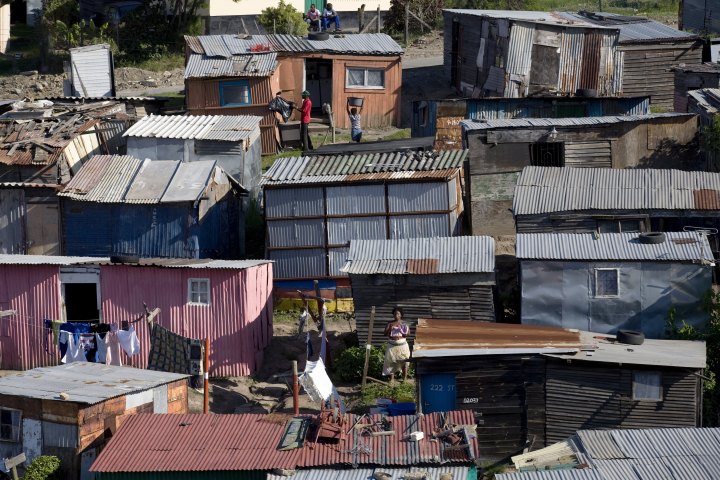ACCOUNTABILITY RABBIT HOLES OP-ED
Political action and collective power — how to hold our municipalities accountable

For 25 years, the government has come up with a range of varying formulas aimed at improving the state of local government, but we find ourselves today, with only 38 out of 257 municipalities receiving a clean financial audit. Is this the democratic dispensation that was promised in 1994?
The crisis of local government in South Africa is not only a political and economic problem, but also a moral and ethical one. It affects the quality of life of millions of people who depend on basic services such as water, roads, electricity, and sanitation. It undermines the vision of a just and caring society that respects human dignity. It also suffocates economic growth and increases political instability. It challenges our social fabric. The situation requires an active citizenry and urgent action from our politicians.
Our politicians should be deeply saddened by the findings of the Auditor General’s report for 2021/22. Thirty-eight out of 257 municipalities received a clean audit, a situation that has seen a drop from 41 municipalities in the last audit. This drop is a regression when assessed over a five-year period which saw improvements in local government clean audits. The report also revealed that irregular expenditure amounted to R136-billion while fruitless and wasteful expenditure reached R4.74-billion. The report also highlighted that local governments remain in financial distress owing to reduced revenue while also failing to spend the limited funds available.
Amathole District Municipality decline
We are situated in the Amathole District Municipality (ADM) which returned millions in unspent grant money intended for infrastructure development, while our communities go without water for months at a time. It has the responsibility to provide water services for close to one million people. Its decline has been rapid: in 2015 they were functional with reserves in the bank and in this last financial year, it failed to submit financial statements to the Auditor General on time. We wish this situation was unique but our municipalities are returning billions in unspent funds across the country. The challenge of failing municipalities is ubiquitous and the effect it has on service delivery is profound.
The response? Our government is serious about strategy but not serious about implementation or consequences for non-performance. Over the years, we have seen strategy after strategy to turn local government around, but none of them has been effective or sustainable.
In 2004, The former Department of Cooperative Governance (DCoG), compiled the National Capacity Building Framework for Local Government which outlined interventions aimed at building capacity within local municipalities. In 2009, Cooperative Governance and Traditional Affairs (Cogta) published the local government turnaround strategy that identified a number of problems faced by local governments and outlined proposed interventions to address these problems. In 2022 a diagnostics review, published by National Treasury, shows the extent of financial support that has been directed towards capacity building amounting to just over R9-billion in 2019/20 financial year and a total of R42.7-billion over a five-year period from 2015/16 to 2019/20. The 2022 Local Government Summit also sought to address the systematic problems faced by local governments and finalised a wide number of resolutions aimed at capacity building, ethical leadership and the professionalisation of local government.
Accountability needed, now
For 25 years, the government has come up with a range of varying formulas aimed at improving the state of local government, but we find ourselves today, with only 38 out of 257 municipalities receiving a clean financial audit. Is this the democratic dispensation that was promised in 1994?
The Constitutional provisions to ensure that service delivery does not falter when local governments fail are grossly inadequate and have been proven to be a poor layer of protection for people’s rights. A report by the Public Affairs Research Institute (Pari), finds that when a municipality is put under administration, very often the situation does not improve and can even worsen. The Pari report highlighted that interventions typically do not result in the recovery of the operational and financial health of municipalities, with some municipalities actually deteriorating through and after the intervention period. This sadly appears to be our experience, where financial administration by the Eastern Cape Province coincided with the year ADM did not submit its financial statements.

A view of traffic on the main road on May 6, 2018 in Ndevana, a rural village in Eastern Cape Province in South Africa. Ndevana has about 40.000 residents but no proper facilities like a shop or hospital. The unemployment rate is huge (about 80-90%) in this forgotten rural area about 50 km from East London, South Africa. (Photo by: Per-Anders Pettersson/Getty Images)
While there is clearly a storm of factors behind failing municipalities, the buck must stop with our local politicians and political parties. The Deputy Finance Minister rightly diagnoses this as a political problem. Political instability, factional fighting and frequent suspensions of senior officials (the need to be seen to be doing something) have rendered municipalities dysfunctional which has a direct impact on their ability to undertake their primary service delivery mandate.
The ruling African National Congress’s (ANC) vision on this issue mentions a lot of the strategic elements but, as shown by the latest AG’s report, remains weak on implementation. The recent 55th National Conference, resolved on several key issues affecting local government. The ANC resolutions on corruption encourage the mobilisation of community members towards fighting corruption and seek to place the ANC at the centre of the fight against corruption. Service delivery mandates are to be realised by ensuring professionals are appointed to technical posts within local government.
To support this goal, there are some positive recent legislative developments through the Municipal Systems Amendment Act, 2022. The amendments provide for a range of interventions which include disallowing municipal officials from holding political office in any capacity, providing for competency criteria for the appointment of municipal managers and includes timeframes for the conclusion of performance agreements. However, these interventions will only bring meaningful change if accompanied by principled and stable politics — sentiments that other political observers and academia share.
While this may provide some hope, millions of South Africans seem to have resigned themselves to the prevailing conditions. We must, however, resist this and respond to the reality of failing local government.
Stand up and fight the norm
We cannot live our own lives well without concern for others. We cannot ignore the suffering and indignity that many of our fellow South Africans endure every day because of the failures of local government. We cannot be indifferent to the corruption, mismanagement and incompetence that plague many municipalities and rob the people of their rights and resources. We cannot be silent when injustice prevails, and accountability is lacking.
We urge our councillors and local politicians to act decisively and effectively. Ben Laurence, in his book Agents of Change, contends that we cannot merely have political philosophy (or strategy) without also being agents of change. That we need concrete actions in the face of injustice. We need political agency: be accountable, take responsibility, show visionary leadership and execute sound turnaround strategies. We call on the political leadership of our municipalities, largely led by the ANC, to take these steps.
Our job as civil agents must be to build collective power in our communities to ensure that we make this happen. Find out who your councillor is, get to know your ward committee, join your municipality’s representative forum, participate in all your municipality’s processes, make submissions, be relentless and do not give up. The cost of doing nothing is too high. As the Auditor General says, there is no messiah or saviour on the way. We all have a role to play, and we must do our part. DM
Tess Peacock is the Director of the Equality Collective and Tino Muringani a research intern at the Equality Collective.



















 Become an Insider
Become an Insider
I’m a member of my local residents’ association committee. In my 8 years in the Eastern Cape, I’ve only been able to attend one public meeting with municipal officials, as these are inevitably held during working hours, and poorly advertised at best. I suspect that municipal officials wish to avoid engaging with citizens.